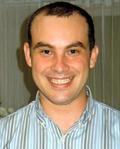Cited By
View all- Sant' Ana van Erven Rde Almeida Jubé DSantos HAndrade de Freitas SCanedo E(2023)Gamification Project to Receive Continuous Feedback in the Context of the Evolution of Public Service for Lawyers2023 IEEE Frontiers in Education Conference (FIE)10.1109/FIE58773.2023.10343441(1-8)Online publication date: 18-Oct-2023


